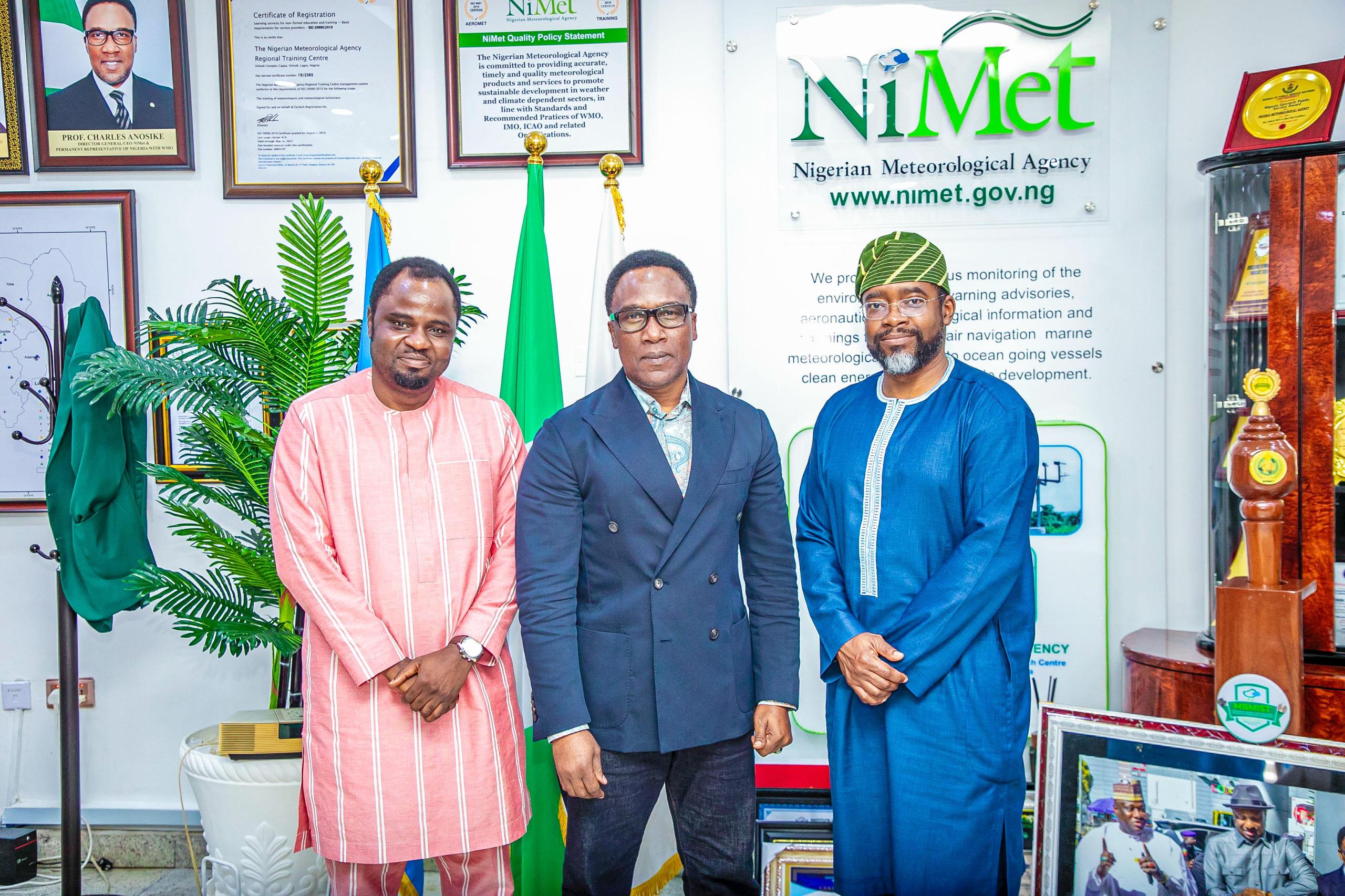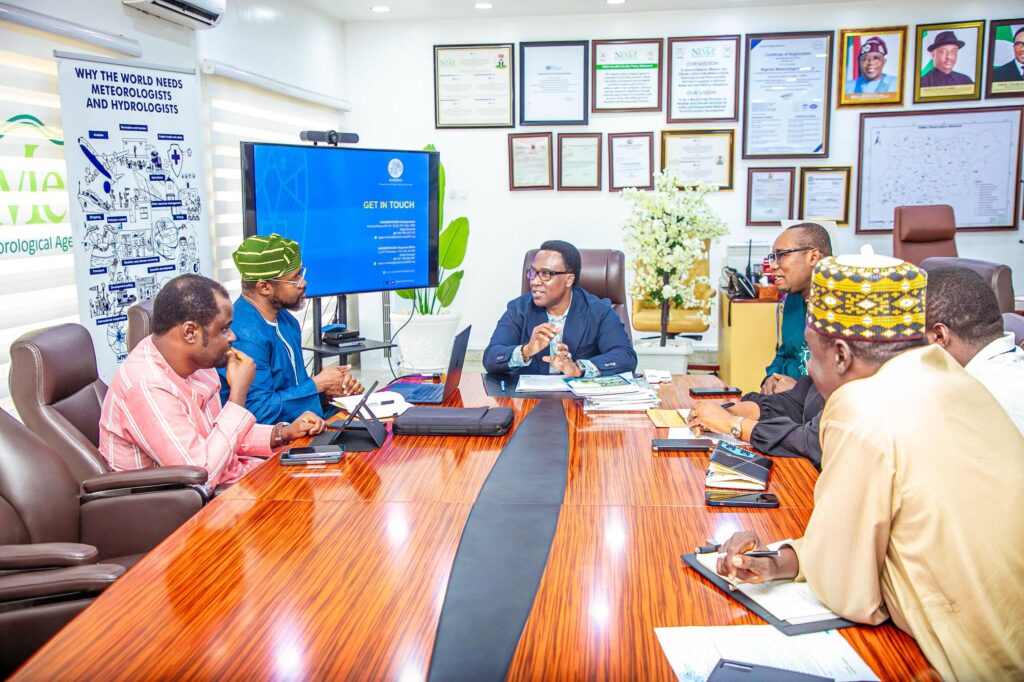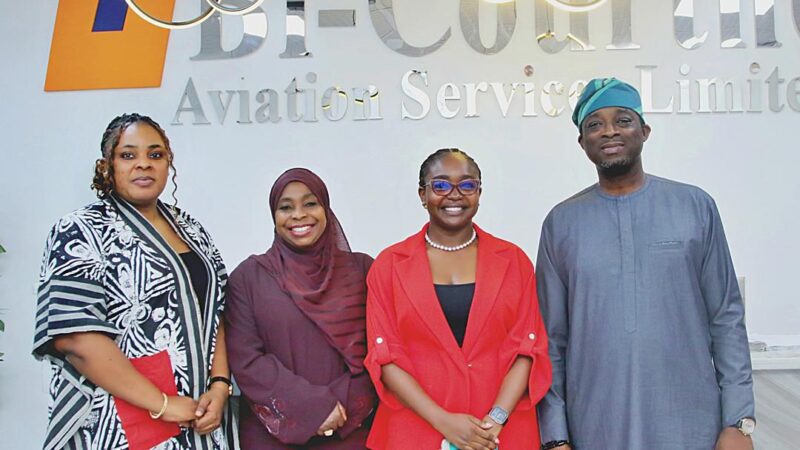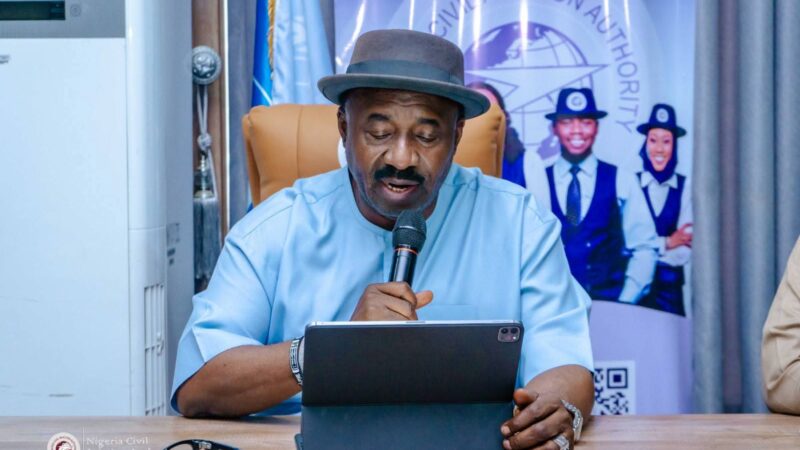NiMet, AKADEMIYA2063 Deepen Ties to Harness AI for Climate Monitoring, Food Security

The Nigerian Meteorological Agency (NiMet) and leading African research institution, AKADEMIYA2063, are set to deepen collaboration in the use of artificial intelligence (AI) and big data analytics to strengthen climate monitoring, bolster early-warning capabilities, and support food-security planning across the continent.
This follows a courtesy visit by the Managing Director of AKADEMIYA2063, Dr Debisi Araba, to the Director-General/CEO of NiMet, Prof. Charles Anosike, at the agency’s headquarters in Abuja, where both leaders identified concrete pathways for collaboration aimed at supporting Africa’s climate-resilience agenda.
Prof. Anosike, who warmly received the delegation, reaffirmed NiMet’s commitment to enhancing weather and climate services in line with national development objectives.
He noted that AI, machine learning and advanced data analytics are fast becoming indispensable in modern meteorology, particularly in improving the accuracy of forecasting and the speed of data interpretation.
According to him, NiMet already has in-house experts in AI and machine learning who have developed models for advanced data collection, analysis and prediction.
These capabilities, he said, place the agency in a strong position to expand its digital infrastructure and integrate more sophisticated technologies in climate-service delivery.
Dr Araba, in his remarks, provided insights into AKADEMIYA2063’s mission to strengthen Africa’s adaptive capacity amid the escalating challenges of climate change and food insecurity.

He highlighted persistent gaps across the continent, including inadequate agricultural data, limited analytical capacity, weak linkages between research and policymaking, and fragmented monitoring systems that hamper effective planning.
He explained that AKADEMIYA2063 focuses on closing these gaps through the development of robust knowledge systems, improvements in analytical tools, and the translation of scientific research into policies capable of driving sustainable growth and resilience.
He emphasised that collaboration with meteorological institutions such as NiMet is critical for building a continent-wide climate-information ecosystem that supports farmers, governments and development partners.
Both institutions agreed that stronger synergy is vital, particularly in areas such as climate-risk modelling, agricultural forecasting, capacity-building, and the deployment of AI-powered tools to support national and regional adaptation strategies.
With NiMet’s meteorological expertise and AKADEMIYA2063’s strength in data-driven agricultural policy, the collaboration is expected to bridge knowledge gaps and foster integrated solutions for climate and food-system challenges.
The partnership, they affirmed, would contribute to Africa’s broader sustainable-development goals by improving the quality, accessibility and utility of climate information for decision-makers at all levels.
To this end, NiMet and AKADEMIYA2063 committed to establishing a joint technical working group to refine areas of cooperation. They also agreed to develop a memorandum of understanding (MoU) and hold follow-up engagements to operationalise selected initiatives.







